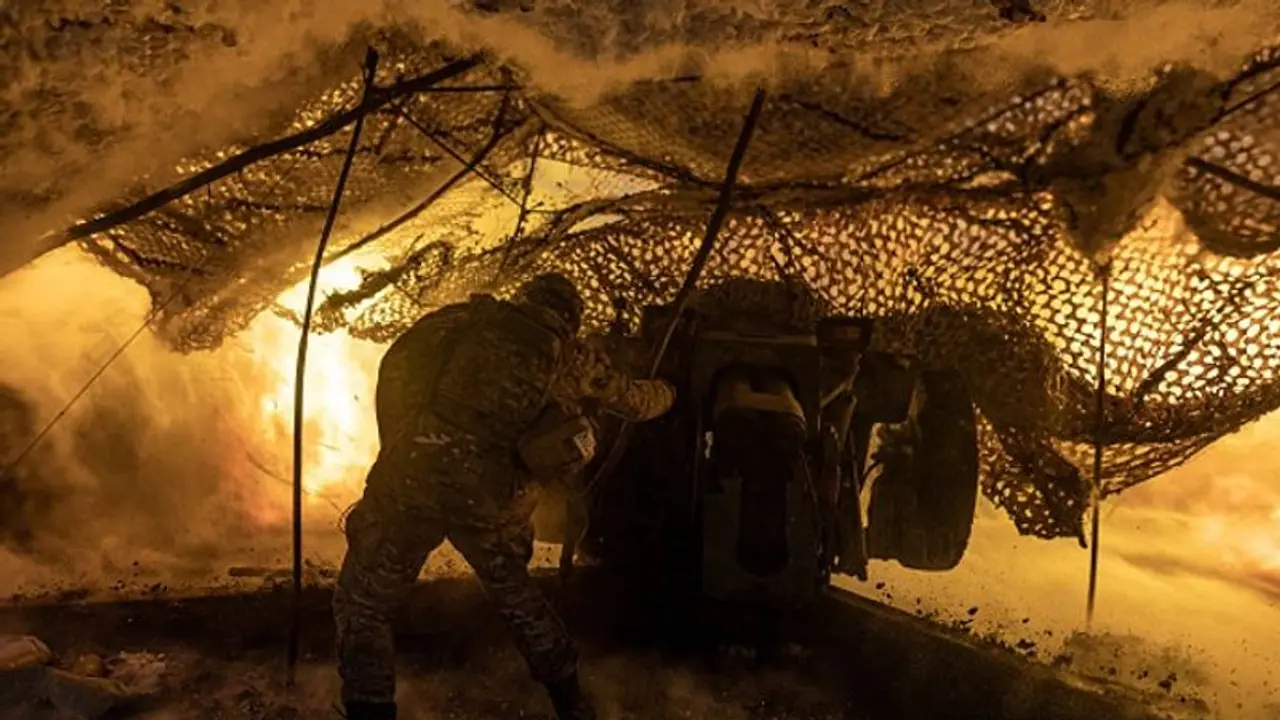Azad Yousuf Kumar, a 29-year-old youth from Awantipora in South Kashmir, recounted his ordeal of being forcibly recruited into the Russian Army amid the ongoing Russia-Ukraine war.
A harrowing tale of survival and unexpected homecoming has emerged from war-torn Ukraine, as Azad Yousuf Kumar, a 29-year-old youth from Awantipora in South Kashmir, recounted his ordeal of being forcibly recruited into the Russian Army amid the ongoing Russia-Ukraine war. His return home, after more than two years of danger and hardship, was a result of what he believes was the intervention of Indian Prime Minister Narendra Modi during his recent meeting with Russian President Vladimir Putin.

Azad’s journey to a brighter future took a dark turn in December 2022 when, after responding to a job advertisement promising lucrative employment in Russia, he found himself in the hands of the Russian military. His tale is a cautionary reminder of the perils of chasing overseas job opportunities without thorough vetting.
Azad’s ordeal began when he came across a YouTube channel called “Baba Vlogs,” run by Faisal Khan, a Mumbai resident. The channel promised job seekers positions as security helpers in Russia with salaries ranging from Rs 40,000 to Rs 1 lakh. Drawn by the success stories and the promise of financial stability, Azad applied for the job, paying Rs 1.3 lakh as travel and processing fees. On December 14, 2022, he left his village, Poshwan, and embarked on what he thought would be the opportunity of a lifetime.
Upon arrival in Moscow’s Domodedovo Airport on December 19, 2022, Azad and a fellow job seeker from Gujarat were abruptly handed over to Russian military officials. Shocked and frightened, they were made to sign contracts written in Russian, which they did not understand. From there, their journey into the heart of the Russia-Ukraine conflict began.
“It sent shivers down my spine. They made us sign a contract in Russian, and all we could do was plead for help,” Azad was quoted as saying in Daily Excelsior.
Transported to the Russian-Ukrainian border, Azad and six other Indian recruits underwent frontline combat training. In the war-torn city of Luhansk, Azad witnessed unimaginable horrors. He recalled the language barrier, lack of support, and the brutality of being on the frontlines. "We couldn't speak the language and had no one to turn to for help," Azad said.
Just days into the training, Azad was shot in the foot, narrowly escaping death. “I didn’t know how to use a gun, and that’s how I got injured,” he recalled, adding that he spent 18 agonizing days in a hospital.
“While being taken to hospital after getting shot, my eyes were closing. But the doctor accompanying me would slap me and tell me not to shut my eyes. I had lost a lot of blood," he recalled.
Despite his injury, he remembered the Russian doctor who slapped him to keep him conscious and began talking about India, invoking names like Rabindranath Tagore, Indira Gandhi, and Mahatma Gandhi, to keep his spirits up.
“Suddenly, he started talking about India, Rabindranath Tagore, Indira Gandhi and Mahatma Gandhi to keep me awake. I told him that I didn’t want to die. Thankfully, I was saved,” Azad said.
PM Modi-Putin's meeting - a stroke of luck
Azad’s life took a dramatic turn when, one day, a Russian military commander in Luhansk addressed a group of recruits. In broken English, the officer said, “Indians go back,” leaving the recruits confused but hopeful. According to Azad, the officer mentioned a recent meeting between President Putin and Prime Minister Modi, implying that the status of Indian nationals serving with the Russian Army had changed.
“He said something like, ‘President Putin met Mr. Modi and now your contract is getting cancelled,’” Azad explained, expressing his immense relief. The realization that he could finally return home to his family, including his newborn son, was overwhelming.
“I believe it was PM Modi’s visit to Russia that ensured my safe return,” Azad said emotionally. He had been away from his wife and family for almost two years, and his son had been born during his absence. His gratitude for the Indian government’s intervention is evident.
Azad’s safe return was not an isolated incident. In June 2024, India’s Ministry of External Affairs (MEA) raised concerns over Indian nationals being recruited by the Russian military, with at least four deaths already reported among Indians serving in the conflict. The MEA issued a strong statement, demanding a “verified stop” to any further recruitment of Indian nationals by the Russian Army, calling the practice incompatible with the India-Russia partnership.
Azad’s case, along with others, prompted diplomatic efforts, culminating in Prime Minister Modi’s informal discussions with President Putin in July 2024. During the talks, held at Putin’s country home, Modi raised the issue of early discharge for Indian nationals who had been misled into Russian military service. The Russian government promised swift action to release all Indians serving under such conditions.
Foreign Secretary Vinay Kwatra confirmed that the Russian side had assured India of their commitment to stop such recruitment and ensure the safe return of Indian nationals. This diplomatic breakthrough proved to be lifesaving for Azad and others like him.
In March this year, 30-year-old Mohammed Asfan, a resident of Hyderabad, lost his life due to injuries sustained while serving with Russian forces on the frontlines in Ukraine. Earlier, in February, 23-year-old Hemal Ashwinbhai Mangua from Surat, Gujarat, was killed in a Ukrainian airstrike while working as a "security helper" in the Donetsk region.
